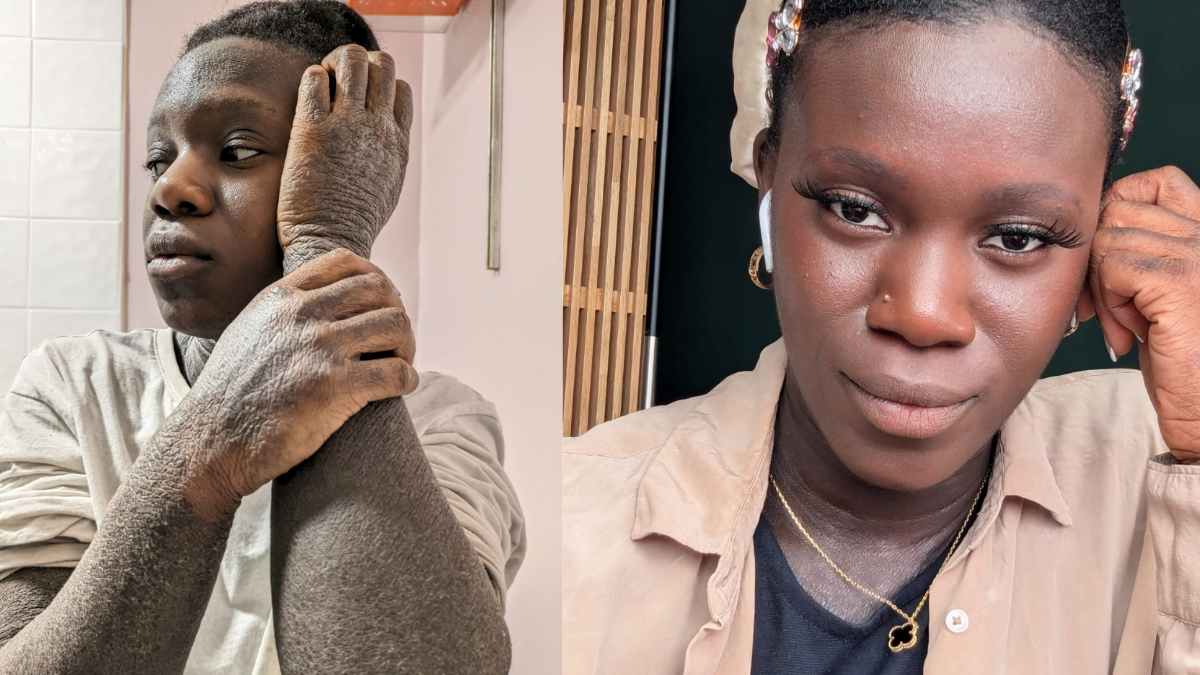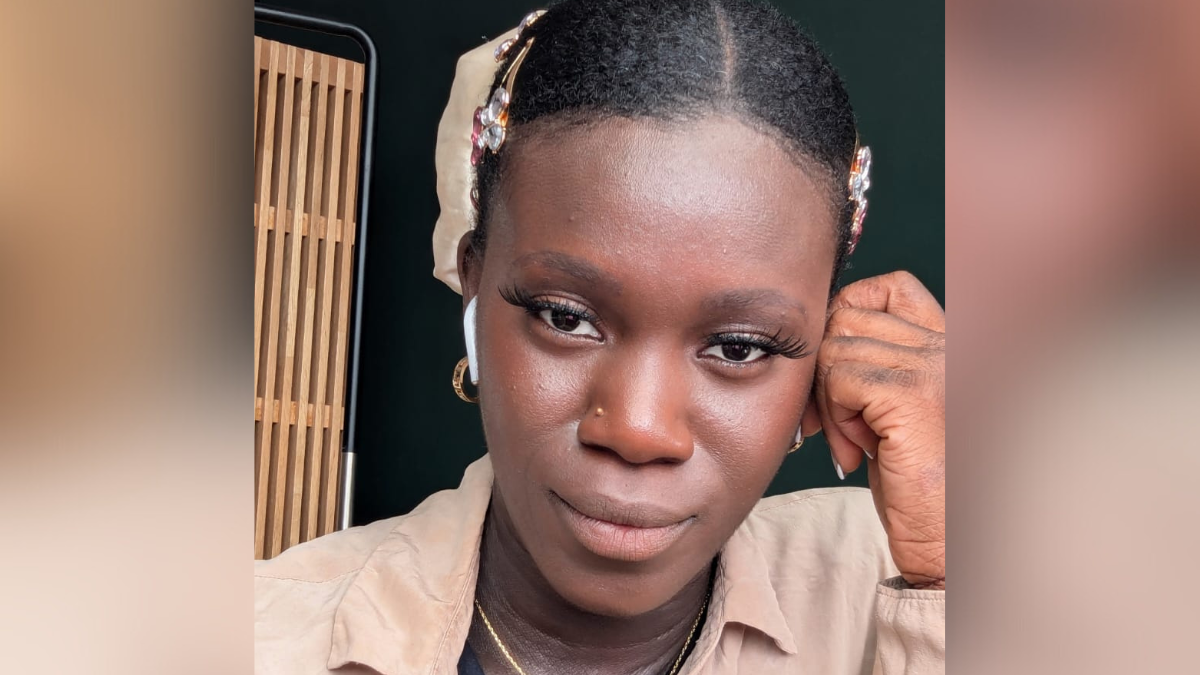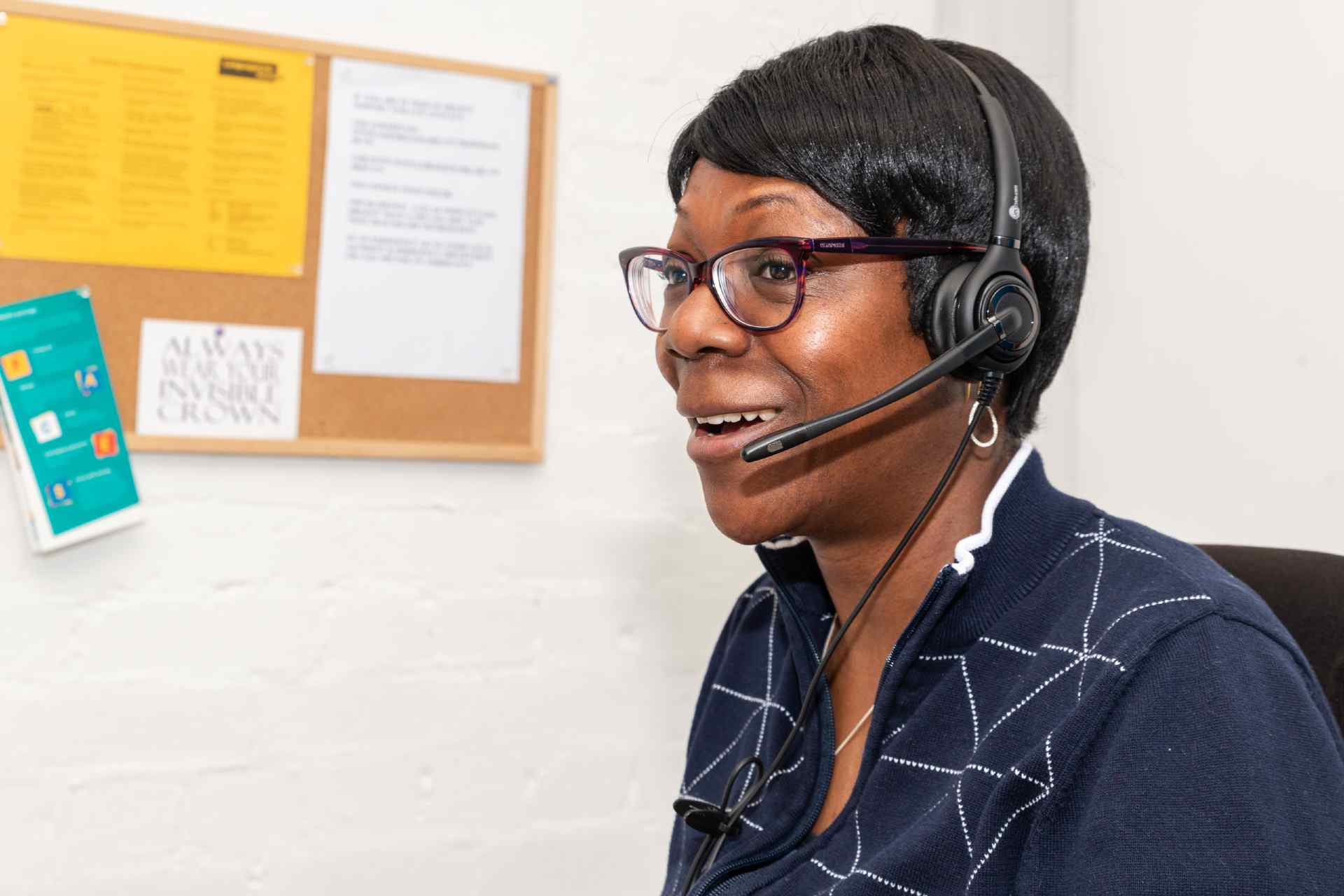I’m Harriet, and I was diagnosed with eczema as a baby, so it’s always been a part of my life, something I’ve had to navigate daily. For as long as I can remember, my skin dictated what I could and couldn’t do, from the clothes I wore to the activities I participated in.
The constant itch, discomfort, and unpredictability of flare-ups were simply my reality.
As a child, I learned early on how to manage it—or at least how to endure it. But what I didn’t fully grasp until adulthood was how much eczema would shape my self-esteem, my confidence, and my relationship with my own body. Now, as a skin influencer and educator, I use my platform, Eczema With Harrii, and my community network, Eczemates on Instagram, to raise awareness about eczema and topical steroid withdrawal (TSW), a condition I only began healing from four years ago. I advocate for better understanding and representation of chronic skin conditions, ensuring that others don’t feel as isolated in their journey as I once did – because eczema is more than just a skin condition—it’s a lived experience that deserves recognition, support, and proper care.
Living with eczema is a unique challenge—one that extends far beyond itchy skin.
From a young age, I was made to feel different—not just by my skin itself, but by how others reacted to it. At family gatherings, I was often singled out, with relatives putting me on display, determined to “fix” me.
I used to feel embarrassed by the girly clothes my mum would dress me in: frilly dresses which didn’t offer the coverage I wanted, and itchy stockings. So, I started wearing my brother’s hand-me-downs, choosing looser, more comfortable clothing. It felt easier to be seen as a tomboy than be targeted for my skin. Over time, this became my armour—I toughened up, befriended boys, and claimed an identity separate from my eczema.
It wasn’t until my teen years that I fully understood how much my eczema affected my confidence, especially as my peers began to take notice too. Not only was my eczema spreading and becoming more severe, but I was also slow to develop hips and a bum, taller than all the boys, and thin, with none of the physical features I believed would make me more accepted as a girl. By year eight, my scalp was so affected by eczema that my hair started falling out. While other girls wore their natural hair with confidence, I resorted to weaves and headbands to hide my shame.

Sharing her experience on social media has helped Harriet to reclaim her confidence.
Secondary school was brutal. I remember being on a school trip when a boy asked why my hands looked like chicken skin. Another time, a boy went around school calling me “crocodile skin.” My girlfriends were furious and went to confront him—I remember feeling so proud of their girl power and loyalty.
Now, as an eczema educator and skin advocate, I recognise how deeply these early experiences shaped me. My self-esteem struggles built over time – and I adapted, creating a version of myself that felt safer from scrutiny. It’s why, today, I push for more conversations about the emotional and psychological impact of eczema, especially for those of us whose skin conditions are more visible and often misunderstood.
Living with eczema is a unique challenge—one that extends far beyond itchy skin. As someone who has had eczema all my life and is now healing from topical steroid withdrawal, I have come to understand how deeply skin conditions can affect self-esteem, body image, and public perception.
Over time, I have learned to accept my skin in all its stages.
On social media, I openly share my journey to educate others and connect with those who feel unseen. However, in my daily life, the unpredictability of eczema and topical steroid withdrawal means that one day my skin may look calm, and the next, I might be dealing with intense itching, flaking, oozing, and/or flaring.
This fluctuation adds another layer of difficulty, as I never know how people will perceive me. Some days, I feel confident; on others, I feel exposed, as though my skin condition defines me before I even have the chance to speak. For me, sharing my experience on social media has helped me reclaim my confidence. Instead of hiding my skin, I have made it my mission to educate others, breaking the stigma around eczema and topical steroid withdrawal.
But that doesn’t mean I don’t struggle. Seeing my own reflection change so drastically from one day to the next can be mentally exhausting. Over time, I have learned to accept my skin in all its stages. I remind myself that my worth is not tied to how my skin looks on any given day. I have also found comfort in the eczema community—others who understand the reality of living with this condition.
By sharing my experiences with others, I hope to challenge perceptions, build understanding, and create a community where no one feels alone in their journey. Together, we can break the stigma surrounding skin conditions and visible differences, and truly embrace our uniqueness.

